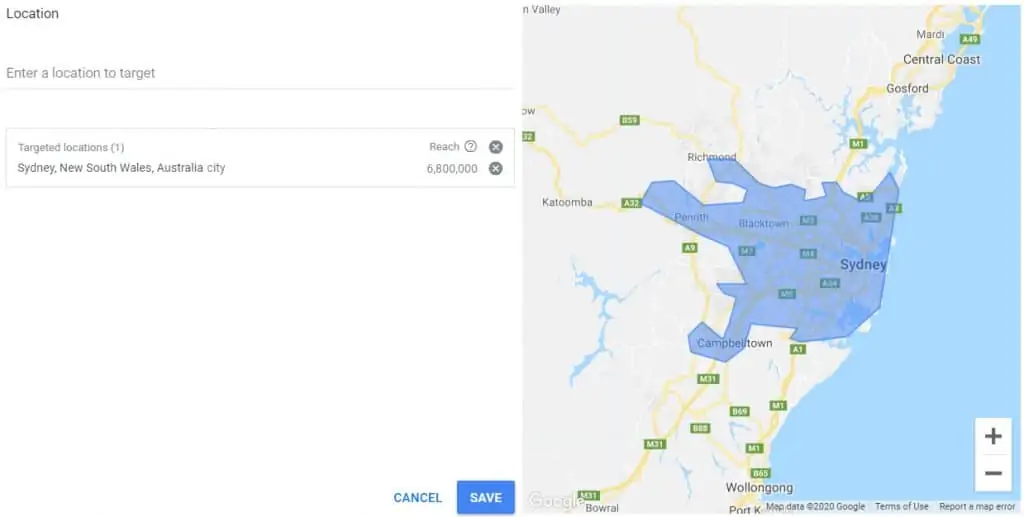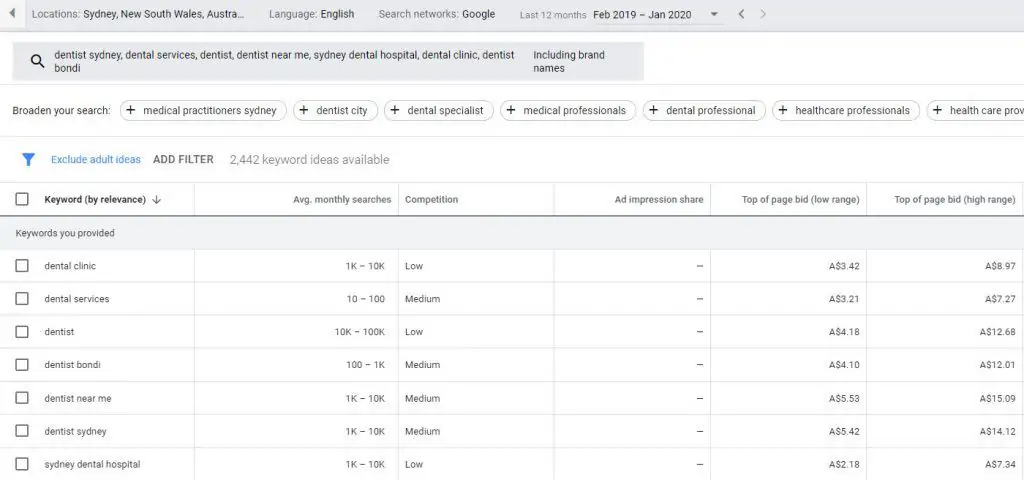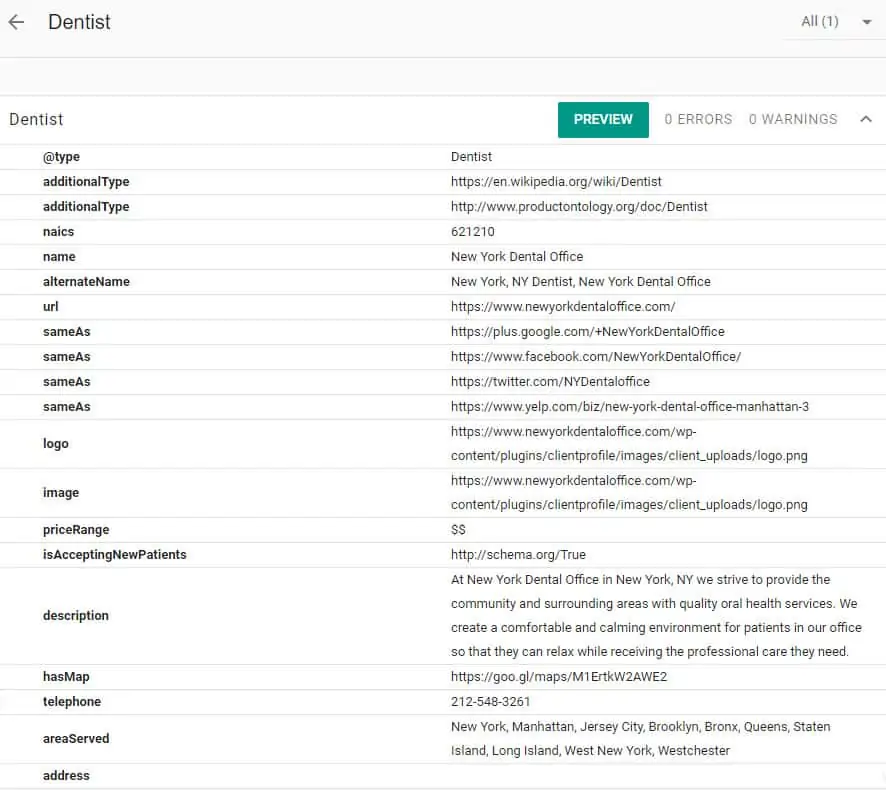
Should I launch my product on Shopify or Amazon?
Product launch dilemma: Shopify or Amazon? We break down the pros and cons of each, helping you choose the best platform for quick sales vs. long-term brand building.

If you’re a local business trying to establish an online presence or looking to expand your operations and branch out to multiple locations, being visible in local search results is vital.
A small business will struggle to compete with the industry giants in the main search results, but you’ve got a fighting chance to carve out some visibility when your local customers are searching for a company near to them.
If you’re paying for local SEO, you want to know exactly what you’re getting for your money. You need to be sure your agency is doing all they can to promote your products and services online.
Here’s a rundown of what you can do to boost your visibility in local search results. Follow these commandments to get to the promised land – a.k.a #1 in local search.
Keywords are vital to increasing your online visibility in search results and form a key pillar of a local SEO service. You need to identify locally relevant keywords for every page of your website.
How do you find locally relevant keywords?
If you want to go it alone or can’t afford to hire an SEO company right now, Google Keyword Planner is a great free tool that you can use to find local keywords. You want to use the same words that your potential customers use, so you need to filter your keyword search by location.

You can see exact data on keyword search volume if you are spending money on Google Ads, but if not, you can still see the relevant keywords that your local audience is using an estimated search volume.
Ideally, you want to target keywords that have a high search volume but with low to medium competition.
When you make a list of keywords, you want to be super targeted. Only target the keywords that are relevant to your business and your products and services. For example, a local dentist in Sydney is going to get much more valuable search engine traffic by targeting the more specific term “dentist Bondi” than the more broad search term “dentist.”

After you’ve built a list of relevant keywords, incorporate your keywords into your website copy, page headers, and URLs.
You need to create unique page titles for every page on your website. Using the list you have compiled from Google Keyword Planner, place a relevant keyword at the start of your meta title, and include your business or brand name at the end. Keep your page titles under 60 characters long.

Meta descriptions are the small blocks of text displayed on the search engine results page (SERP). When somebody searches Google for a local company, the meta description can encourage them to click through to your website, or turn them away to keep scrolling through the results and find one of your competitors. So it’s essential to spend the time to craft a compelling description.
To maximise your presence in search engine results and increase your visibility for your local customers, create separate web pages for every company location, product, and service that you provide. Every page of your website should have a specific purpose and topic.
If you cram all of your services onto a single page, you make it more difficult for Google to determine what the page is about and limit the potential for being seen as an expert in a specific area.
Local SEO services can help you structure your website to be as appealing as possible to search engines. If you are operating from a single location, you can optimise each page for local SEO by using relevant locational words. For example, rather than giving your service page the headline “Bathroom Renovations,” use the locational keyword “Sydney Bathroom Renovation Services.”
If your company has multiple physical locations, you need to create a specific web page for each location.
Every location’s web page should include the relevant NAP and local business schema. You’ll also need to create a separate Google My Business Page for each business location.
Structured data is a small piece of code that is added to a web page to provide Google with more information to help understand what the page is about. Any decent SEO company will add local schema to provide Google with your company’s address, business name, phone number, opening hours, and any other relevant information to ensure that your company is displayed correctly in search results.
If you’re not sure that your website has a local schema, you can find out by running a free test on Google structured data tool. Enter your homepage URL, and you should see something similar to the result on the right-hand side below:

You should also add your products and services to your relevant webpage schema to inform Google what your company has to offer.
NAP stands for Name, Address, and Phone Number. When your NAP information is posted around the internet, search engines use this information to inform search ranking.
Local SEO services help you to increase your NAP citations on popular platforms and niche-specific directories and ensure that your information is consistent across the web.
For search engines to display your company in the SERP, you need to ensure that your NAP information is consistent everywhere it is cited.
You need to be methodical and make sure that your business name is accurate. If your name includes a Co. or LLC, make sure it appears in every citation and that your business address is consistent with the information displayed on your website.
Create profiles on social media platforms and industry-specific forums and local business directories.
Not only is social media a great way to promote your products and services online for free, but it’s also a factor in search engine ranking. Search engines crawl social media platforms to find your social media profiles, business reviews, and even your latest social posts. Maintaining an active presence and encouraging users to leave reviews can help you climb the local results.
Another free way to boost your local SEO is to list your company on local business directories. There are loads of local websites that have sections like “Places To Eat In Our City.” If you can get your business mentioned on these websites, you can boost your local SEO. The majority of the stories running on these sites will be about your town or city, which will help you to increase your ranking in local SEO results.
Earn online reviews, especially on Google. Reviews are vital to search engine optimisation (SEO) for three critical reasons.
Firstly, Google wants to provide searchers with the best and most relevant results. If you have 50 genuine reviews praising your business, you’re going to rank higher than a company with no reviews. Reviews are a key factor in local SEO ranking.
Second, reviews help your business to stand out and occupy more space on the search engine results page. The more space you occupy, the more likely you are to catch the eye of a potential customer and encourage them to click through to your website.
And lastly, positive reviews can help you to attract new customers. People look for social proof when they are making a purchasing decision. If you can encourage your happy customers to leave positive reviews, people are more likely to trust your business to provide a quality service.
Link building is vital to SEO and your online visibility. Use internal links where applicable and focus on acquiring quality links from other local businesses and websites to boost your ranking in the local results.
You can start your link building by targeting the local businesses and organisations that you have an existing relationship with. If you sponsor a charity or have contributed to a fundraising event, contact the organisation and ask if they can include a link that directs back to your website.
Link building is where your networking skills can pay off. Work on building relationships with other local businesses and websites that are related to your niche. If your writing skills are up to scratch or you have the budget to hire a local SEO company that offers a guest posting service, you can contribute a guest blog post to your local chamber of commerce for a high domain authority backlink.
Earning high-quality links from local websites can give your search engine optimisation (SEO) a shot in the arm and provide a competitive advantage in local results.
People use a local search and rely on Google to find accurate information about your business every day. It’s vital that you make it as easy as possible for people to access this information.
Any decent marketing agency or local SEO company will be able to help you claim your Google My Business page or pages (if you have multiple locations) and add all the necessary information. You’ll need to select categories for your business. An easy way to identify the right categories is to look at your competitor’s primary and secondary categories.
Make sure that your local SEO company ensure that your business location and contact information are accurate, create a concise business description, and include a link to your website.
Once you’ve added all your information, you can increase the visual appeal of your listing by adding your company logo as your avatar. You can also upload high-quality photos of the exterior and interior of your business premises. Any respectable marketing agency providing local SEO services will be able to help you with professional photography to present your company in the best possible light.
Publishing fresh and high-quality content on your site is an essential component of search engine optimisation (SEO) and can lead to more local search traffic from search engines. By targeting a more extensive range of keywords in your content marketing, you can attract more people to your website that are interested in your products and services.
Adding new content can also help fuel your outreach and promotion. High-quality content marketing makes it more likely you will get links from other sites, which leads to higher domain authority and higher rankings.
Marketing Techniques Your Local SEO Company Should Use To Promote Your Content:
To reach the promised land and achieve the 1# ranking in local search results, you need to continually work on search engine optimisation.
SEO is not a one-off marketing activity.
New and existing competitors are investing in SEO, targeting the same keywords as you, and looking to rank above you in search results. Search engines are also continually updating their algorithms and changing the ranking of results.
Even if you think you currently rank well if you’re not developing your SEO, you’re standing still and vulnerable to your competitors and algorithm updates.
When it comes to local SEO, you can level the playing field and compete with the big brands in the local search results. By utilising local SEO marketing services, you can increase your visibility online and make sure that your customers can find you when they are looking for your products and services.

Product launch dilemma: Shopify or Amazon? We break down the pros and cons of each, helping you choose the best platform for quick sales vs. long-term brand building.

Master Amazon cash flow! Learn to calculate your product’s cash cycle, from manufacturing to payout, using Amazon’s “Sell Through Rate.” Get accurate forecasts for smarter scaling.

Neil Patel recently shared powerful tips on email marketing success—think cleaner lists, smarter personalization, and value-packed content. His key message? Email isn’t dead; it’s evolving.
Subscribe to receive exclusive industry
insights & updates
Copyright © 2014 – 2025 One Egg. All rights reserved.
Subscribe to receive exclusive industry insights & updates